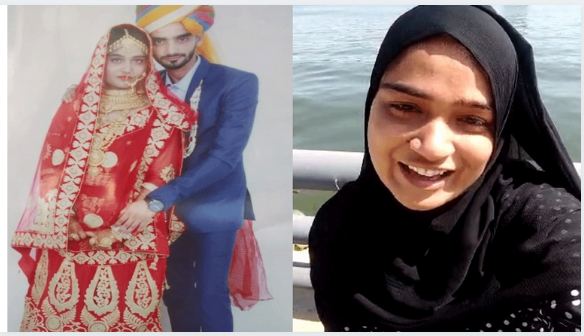23-years-old Ayesha Banu Makrani, a resident of Almina Park, Vatva, Ahmedabad shook the conscience of India, particularly that of the Muslim community, with an emotional video recorded moments before she took her own life by jumping into the Sabarmati river on February 25. Ayesha’s husband – Arif Babukhan is said to have inflicted mental torture on the young woman, along with his family, owing to their unending greed for dowry. Arif also harassed his wife, and also allegedly had an extramarital affair, leading to Ayesha claiming in her final words, “Mohabbat karni hai to do tarfa karo, ek tarfa me kuch haasil nahi (Loving someone should be a two-way street, one-sided love attains nothing).”
The suicide of Ayesha has brought to light the plight of women within the Muslim community. Many think that the woes of Muslim women have evaporated in thin air with the Modi government passing a blanket ban on the menace of triple talaq. However, there are a multiplicity of other problems which continue to make life hell for Muslim women. Among them, dowry and polygamy are the two issues that lead to tremendous mental trauma for women.
Read more: She hugged death smiling – Ayesha and the plight of faithful partners cheated in marriage
Ayesha’s father Liaquat Ali said that she got married to Arif Khan, a resident of Rajasthan’s Jalore, in July 2018. “However, since marriage, her in-laws started demanding dowry from her. I gave them some money but their greed increased. A few months ago, Arif sent Ayesha back to my place after a fight. He also stopped talking to her over the phone. Unable to bear the pain, she decided to kill herself,” Ali told India Today.
The suicide of Ayesha has brought to light how the menace of dowry has gripped the Muslim community, and how it despite being declared criminality in India, is flourishing in the second-largest majority community of the country. Dowry has been declared criminality in India, but not for Muslims. The Dowry Prohibition Law does not apply to Muslims, which is why they continue engaging in the draconian practice without fear of the law and even killing women who do not bring large bundles of cash and goodies along with them.
Although dowry is not prohibited among Indian Muslims, it must be mentioned that Islam considers the practice as ‘haram’. However, Indian Muslims are willing to go against the decree of the shariat in order to accept dowry from their brides. This has led to incredible levels of mental health issues among Muslim women, many of whom are forced to take radical steps like Ayesha.
Apart from the menace of dowry, Muslim women also have to live through to see their husbands engaging in multiple relationships, and being legally bestowed with outrageous rights of marrying four times. Such social injustices and malpractices prevalent within the Muslim community must immediately be addressed, for which the passage of a Uniform Civil Code (UCC) is of utmost importance. Unless and until a civil code applies to all Indians similarly, neither can we achieve an equitable, nor a just society. The Modi government will be well advised to immediately begin working on the UCC, if not for anything else, in order to at least ensure justice for Muslim women.

